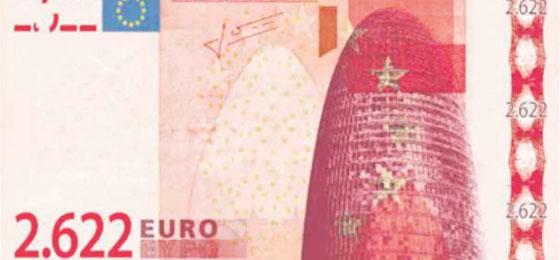Political parties are normalising nationalism

In Europe, a number of rich regions have called for independence. There are some surprising similarities in the rhetoric of the popular political parties. By Dominique Hartmann
(From "Horizons" no. 104, March 2015)From Scotland to Flanders, from the north of Italy to Catalonia, political parties are heralding their separa-tist intentions. Despite very different ideological, organisational and electoral points of view, there are some similar arguments underlying the calls of the Scottish National Party (SNP) in Scotland, the Northern League (NL) in Italy, the Republican Left of Catalonia (RLC) in Spain, the Flemish Interest (FI) and the New Flemish Alliance (NFA) in Belgium. This is the view of Emmanuel Dalle Mulle, a researcher at the Graduate Institute of International and Development Studies, Geneva. With the exception of the SNP – backed by oil wealth – all of these parties, which are situated in wealthy areas, are relying on the argument of injustice, referring to the way in which taxes levied in their region are transferred to other parts of the country. “It’s worth noting that the size of these transfers varies considerably according to the methods used or the years in question”, says the researcher. This of course has nothing to do with solidarity; these donations are supposedly leading poor regions to become dependent on a central state. They are judged as excessive as well as being ineffective in the economic convergence of the least advanced regions. This is stopping the development of local activities and engraining a permanent nature to these transfers. Political parties, therefore, consider their own regions to be tied into the development of other regions by what they consider as an economically and socially backwards centre.
In addition to economic victimisation, they also talk of political marginalisation. The two Flemish parties are very quick to recall the minority in Wallonia possessing a veto right on any constitutional changes, which is stopping the Flemish majority and its goal of changing the way the country is organised. This reflects how the economic capacities of the two communities have been inverted, starting with the decline in Wallonia that started in the 1960s. In Catalonia, the RLC highlights the injustice rooted in the failure to recognise the plurinational nature of the Spanish state. “One example: while learning Castilian is a constitutional requirement, citizens are, however, free not to use Catalan”, points out Dalle Mulle.
A strong work ethic
These are not modern claims. They began life at the end of the 19th century and led to the widespread creation of the nation-state. It is only the Basque and Catalan forms of nationalism – formed at the beginning of the 20th century – that displayed
this minority model, coming from a more developed periphery and threatening the unity of the state as the five parties do today.
According to Dalle Mulle, these parties emerged on three different levels. From a structural point of view, the nationalism in wealthy regions developed following the opening of large deficits in state finances, which had an impact on the level of public debt and/or taxation. In the 1990s, the traditional Belgian, Spanish and Italian parties were rocked by corruption scandals, contributing to the appeal of alternatives. Alongside this, new cultural paradigms began to spread, beginning in the 1970s. They became the new understanding of the world, justifying the discourse on identity used by these political parties. Dalle Mulle says, “in places where a region’s success was based on values such as a work ethic, for example, and not on an unjust sharing of resources, these parties escape being labelled egotistical”.
Then European integration and globalisation started to play an important role. “For these parties, the central state appeared to be a negative figure, which is typical in all identity constructions. Europe presented itself as a positive model”. This was a place where parties could brandish the values they associate with modernity: economic progress, meritocracy and fiscal strictness in the case of the NFA, the NL and the FI, and social protection and growth for the RLC and the SNP. The European project also allowed them to reassure their con-stituents about the costs and the uncertainty often associated with the process of independence, “even though recent history has shown, during the referendum on independence in Scotland, that the European Union requires any state born of secession to submit its own accession request in good time and form”. Furthermore, European integration legitimised the discourses of donor regions that wish to reinvest in their local economy using the considerable funds earmarked for transfer, and thereby level out the playing field. There is also globalisation, which has strengthened the importance placed on governance, particularly with regard to state finances and therefore the traditional context in which companies work. This is another factor in competitiveness.
So the favourable election results of these parties are not based just on a separatist discourse, for which there is no majority. In reality these parties have developed ideological profiles which go beyond a simple desire for independence, social democracy for the SNP and the RLC, conservatism for the NL and the NFA and the extreme right wing for the FI. Furthermore, they are committed to independence of the democratic variety: electors therefore know that they will have their say and that they can vote for them despite their separatist goals. “What they have certainly achieved is normalising nationalism and strengthening the regional dimensions within states”, says Dalle Mulle.
Dominique Hartmann is a journalist at the newspaper Le Courrier.
According to the calculations of the Republican Left of Catalonia, every person in the region pays 2,622 euros a year more to the Spanish state than they get back. In Belgium, the New Flemish Alliance believes only a 'Flanders exit' can lead the region out of crisis. “It’s Scotland’s oil”, says the Scottish National Party. And the Northern League believes that the north of Italy toils away in order to lay golden eggs into the thieving hands of Rome.